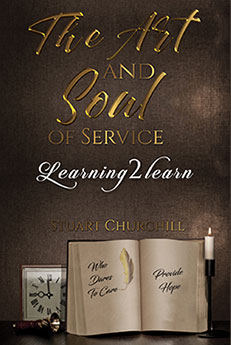
STUART CHURCHILL GIVES HIS OPINION ON THE PROBLEMS CAUSED BY MAKING NURSING AN ACADEMIC DEGREE
Being
a hospital trained General and Psychiatric Registered Nurse and hold a degree
in Health Science and a Master in Management specialising hospital resource
development, with 50 years’ of healthcare experience, feel that I am well
placed to make an opinion on the problems that have been caused by making
nursing an academic degree. It was very clear that the development of
specialist services trained at University carried more weight and looked down
at nurses as just hand maidens of the medical profession. As time passed it was
not uncommon to find social workers, psychologists or physiotherapist heads of
departments, in Australia you could find social workers and physiotherapist
running mental illness with very little hands on experiences. It is not hard to
visualise why the powers to be wanted nursing to be a degree subject. Having
worked as a University lecturer I can say without question, that going to a
University is not just about learning, but for most a rite of passage of
behaviour contra to learning and becoming part of an academic club with a
certificate saying I have been there. Too many go on and never really use the
academic knowledge gained at University.
It is
clear when you look at the number of Nursing Degrees gained in any year how
many are working for the NHS two years after gaining their Degree. In
understanding why, you have to look at what is academically learnt at
University and what is lacking when starting on a hospital ward as a registered
nurse. Too many are not prepared for the complex care interaction between those
who ‘suffer’, and the psychological need for empathy and support, as an
individual is treated and supported through recovery. The lack of experienced
nurses find it hard to mentor newly registered nurses and the expectation of
knowing how to deal with the demands creating high levels of stress, built up
over time, starts to affect every part of their life and often becomes too hard
for them to continue. In discussions with newly qualified nurses, in how they
found working as a qualified nurse two answered stood out, ranging from having
no idea of what nursing was all about before starting University. Worked
through all of the hands on experience placements, did not learn the reality of
bedside nursing and within weeks it stressed her so much she had difficulty
sleeping and keeping a healthy diet and was not sure if she would stay in
nursing. At the other end of the scale, was from a person who started off as a
carer in a nursing home and a care assistant in a hospital before starting at
University, who said that too much of the University training concentrated on
the academic understanding of learning and not enough of what was between the
words, when asked to explain he said that hands on care was not an academic
subject and there was not enough about the emotional impact of care. If he had
not spent three years working with people who ‘suffered’ he would have not made
it through his time at University. This was the core of all the conversation
and it was agreed that if they had spent time in a hospital before deciding to
do nursing would have prepared them better or chose another subject of study.
Question two, are we developing the best nurses based on academic standards or
should it be more about care and should hospitals play a much bigger role in
how nurses are trained?
Post Views : 288